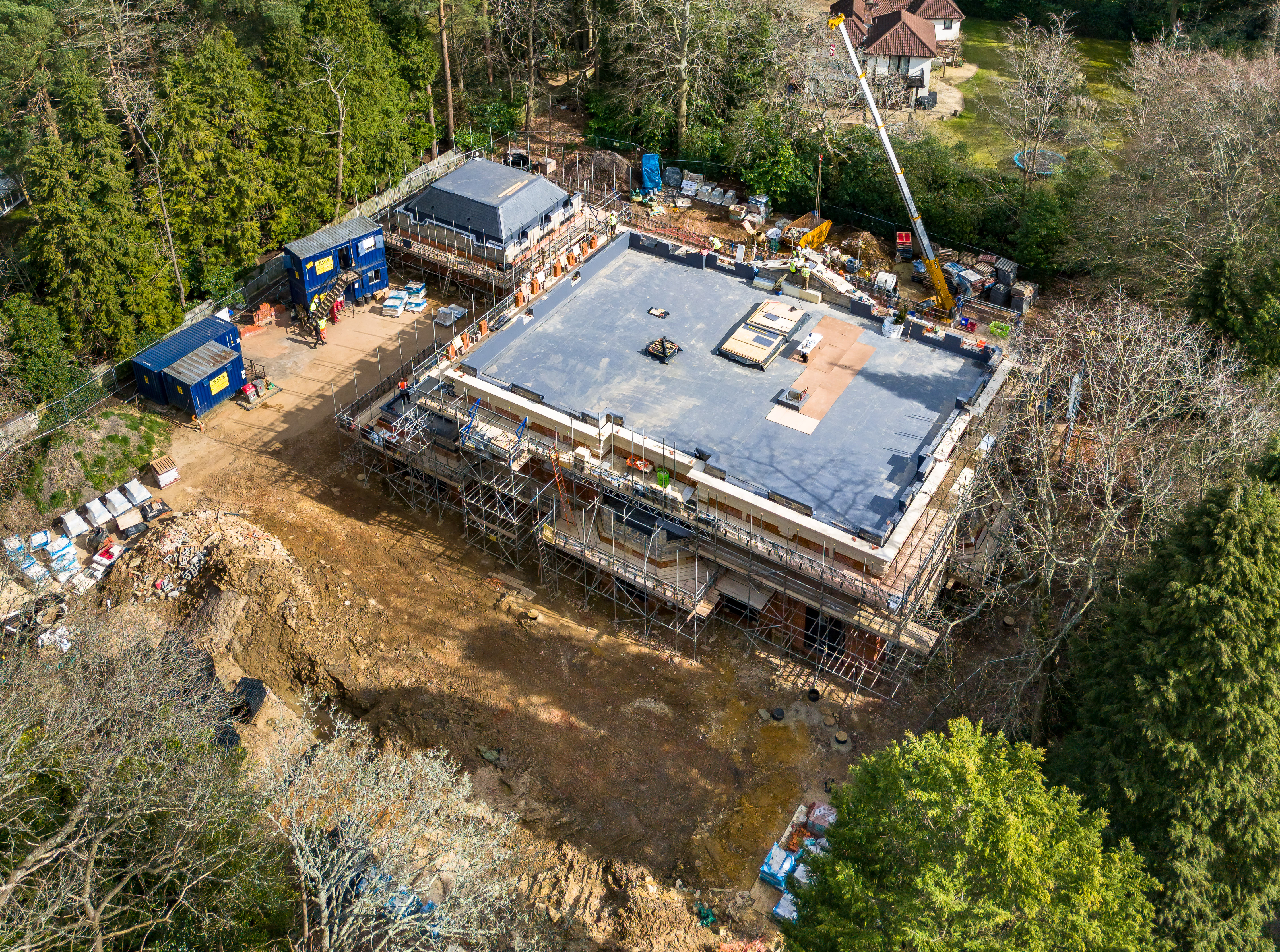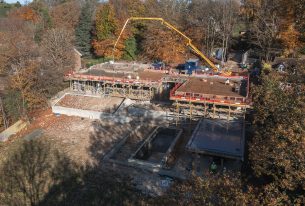


It may be news to some that Building Control isn’t ultimately accountable for ensuring that a completed building complies with building regulations. Their role must be, therefore, simply to advise and assist the client to meet the standards. The current process is failing to find anyone with legal liability so, is the whole process even worthwhile? How can Building Control expect to improve standards and apply regulation if they have no legal accountability? Where can we innovate to improve standards?
Since privatisation in 1997, we’ve noticed gradual changes in the Building Control process and their service. And now we’re witnessing issues with the Building Control process with increasing frequency and levels of frustration.
At Hale, we engage with Building Control Bodies (BCBs) at all stages, not only to meet minimum requirements but to look for improvements to add value for our clients and to fulfil our mission to build lasting quality and ensure the wellbeing of our end users.
We firmly believe the end goal for everyone in the construction industry should be to erect a building to a high standard and ensure it lasts a long time. However, the way regulations are currently enforced means that the goal has shifted, with some viewing the regulations as a guide which can be manipulated as required to save costs. The only innovation this drives is developing more cunning ways to ‘get round’ the regulations.
Recent misgivings
The industry is still reeling from the Grenfell disaster and as the inquiry continues, we aren’t any further forward. The situation highlighted the very issue of accountability that has been developing for a long time. But why is attention merely focused on high-rise buildings? The same problem exists across the industry and for all types of building areas of safety, sustainability and comfort should be considered within the Building Control and regulatory process.
In theory, it should be a simple procedure – BCBs approve detailed drawings, then site visits confirm that the physical result matches the drawings. However, we’re witnessing tremendous levels of disparity between BCBs and their inspectors: some are much more lenient than others, there’s substantial variation in interpreting regulation, and they limit site visits. We’ve requested site inspections a few times to check progress, or incremental changes to drawings following on-site mitigation work, and the BCB has refused to visit as it was out of their allotted spend.
In another dramatic example, we recently took over a project (following insolvency of the previous contractor) with Building Control certified shell and core, yet there were major defects in the new structure that was handed over. We worked closely with architects, structural engineers and the BCB to remedy the work and ensure a safe build for the client, but they had to invest extra money to do so. The client was placed in a risky position they never should have been in.
We fully appreciate that as commercial enterprises BCBs have to perform as efficiently as they can, not only to keep afloat but to make a profit – but they must uphold standards. It appears that as they don’t have ultimate responsibility for the end results, profit margins are more important, leaving the building owner at risk, despite having paid for and gained Building Control approval.
Privatisation creating too much commercial choice and manipulation
Since privatisation, end users or developers can choose their own BCB instead of being allocated a Local Authority inspector. The market has grown significantly in recent years, leading to extensive competition, which is good and generally drives innovation and efficiency. However, as James King, president of the London District Surveyors Association (LDSA) pointed out in his letter to the Hackitt review back in 2018:
“It becomes extremely easy for the ‘regulated person’ to apply financial and commercial pressure to the person who is supposed to be upholding the standards. No other sphere of activity is regulated in this way…I don’t think anyone would countenance a restaurant employing their own food hygiene inspector.”
We’ve experienced BCBs offering discounted work to secure further contracts. We even have anecdotal evidence of inspectors certifying sub-standard works in a quid pro quo situation to guarantee future income.
Current options not quite cutting it
Build Warranty programmes, like the NHBC scheme for new builds, seem to work well. NHBC is widely recognised and provides warranties for 80% of new homes. But do warranty schemes offer sufficient cover? Apart from being a mortgage pre-requisite, they’re all voluntary schemes, and are only for new builds, often with costs that can alienate many private construction projects, therefore they fail in their goal of driving up quality across the industry. Without universal standards, warranty providers are racing to the bottom to provide the least amount of cover, making the paper it’s printed on the only enduring element of the agreement.
A radical rethink
As Dame Judith Hackitt identified in her review, if you set minimum standards, they may well be the maximum you ever get:
“Some of those who construct buildings treat the minimum standards in the Approved Documents as a high bar to be negotiated down, rather than genuinely owning the principles of a safe building and meeting the outcomes set out in regulations…There is a need for a radical rethink of the whole system and how it works.”
Solving this issue demands a complex and long-term process, but we believe there are some actions which will help: collaboration, regulation and mandatory obligation.
Clients often want the cheapest option but demand the best. Extending Building Control approval to provide an NHBC style warranty set to minimum requirements could be the most efficient, fair and serviceable solution for all. BCBs will then perform a key role in driving up standards across the industry driven by the demands of warranty underwriters.
The process, including warranties, will be more expensive for the client but the finished product will be built to a higher standard with guarantees for current and future building owners. By encompassing a warranty system, relationships between builders and the providers will have to be closer and more collaborative, and ultimately encourage innovation from all parties to efficiently meet the goal of high-quality and enduring buildings. This already happens with NHBC where some NHBC standards exceed the Building Control requirements.
As a result, buildings will last longer, be more efficient and have reduced lifetime costs. Regulation would ensure minimum standards of warranty cover and competition will then drive efficiency to make it more cost-effective longer-term.
A tiered accreditation scheme similar to BREEAM may provide even more incentive to achieve higher standards and improve the entire construction industry. Higher ratings could garner higher confidence, assurances, and ultimately higher resale prices and profits, to reward and encourage everyone in the building community to innovate and strive for better.
In conclusion
The system needs substantial improvements, but we believe accountability is possible. It will need an investment of time, resource and expertise to do properly, calling on all areas of the building community. We’ll eagerly await the changes, but in the meantime, we will continue striving for the highest standards in our own work, working closely and collaboratively with the client team, architects, developers and owners.
We’re a committed construction company, never compromise and always want to do the best possible job. Some people will always try to exploit the system but you can rest assured that at Hale we create enduring quality. For us, it’s more than ticking the boxes and making things aesthetically pleasing for handover, it’s constructing something we’re proud of and that the owner can enjoy for generations – with lasting quality and functionality.









